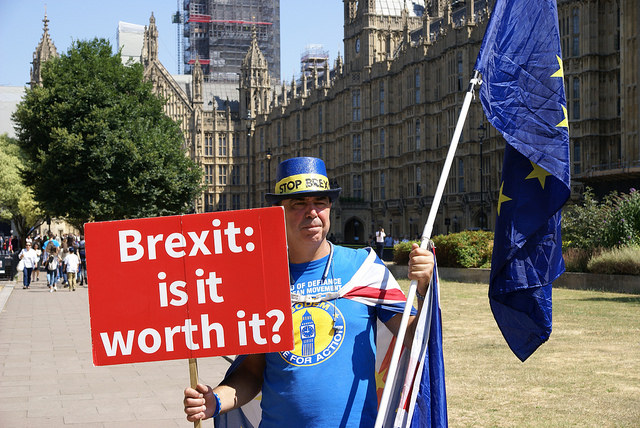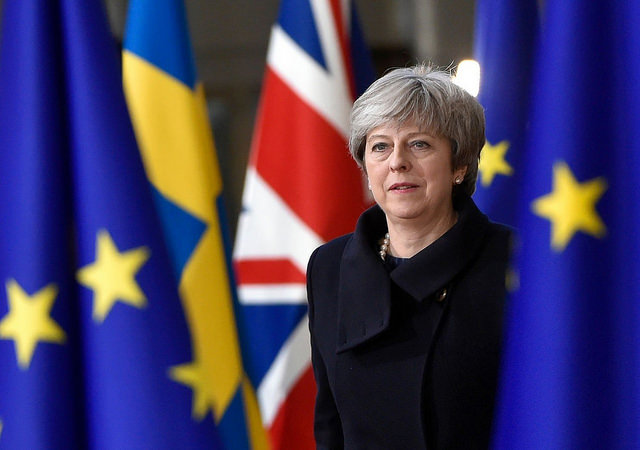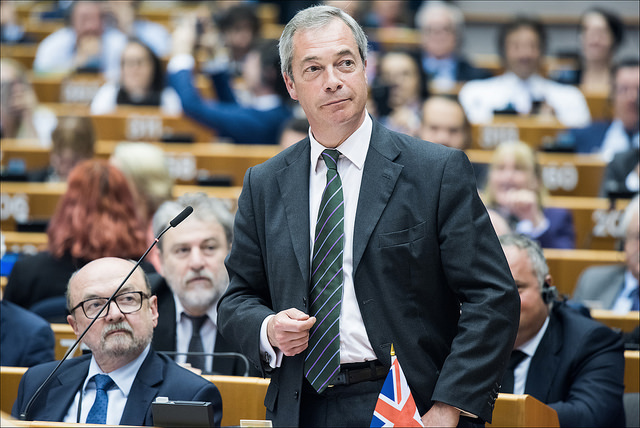
What’s going to happen after the Brexit vote?
Note: This article was written on 15th January 2019, before MPs had voted. They subsequently chose to reject the deal.
On 15th January 2019 MPs voted on whether the UK should accept Theresa May’s deal with the EU.
What it means: Let’s quickly recap what’s going on, shall we? Way back in June 2016, 51 percent of Brits said they wanted to leave the EU. To which the UK gov said cool, let’s get this Brexit show on the road. Everyone sat back and waited for the “easiest [deal] in human history” to be signed off. Two and a half years later, they’re still waiting.
The problem isn’t that Britain doesn’t have a Brexit deal: PM Theresa May signed one off with the EU last year. (You can read all about what it says here.) The problem is that almost nobody thinks it’ll be good for Britain or its economy.
To be slightly fair to May and her deal, it does seems to have managed the almost impossible feat of getting people who normally disagree on absolutely everything to unite behind it… sorry, did we say behind it? We meant against it.
Remainers and Brexiteers took time off from labelling each other “enemies of the people” and “rodents” to agree that May’s deal is worse than just staying in the EU, although ofc they remain divided on whether that means we should cancel Brexit entirely or leave with no deal at all.
Tory ex-Foreign Secretary Boris Johnson and Labour Leader Jeremy Corbyn both said that they were worried May’s deal would oblige Britain to continue following EU rules on things like the quality of traded goods. (Corbyn called the deal “the worst of all worlds”. Johnson went for a more muted approach and said it would turn the UK into an EU “colony”).
The DUP, a Unionist Northern Irish party which campaigned for Brexit because they thought it would cement Northern Ireland’s place as part of the UK(unionists want to remain part of the UK, while republicans want to join up with Ireland) complained that the deal would isolate them from Britain. In an attempt to keep Ireland and Northern Ireland border-free May’s deal says that if necessary Northern Ireland can just keep acting like it’s kinda part of the EU (and therefore like it’s part of Ireland) while the rest of the UK does it’s own thang.
But Theresa May, who has never been accused of knowing when to stop beating a dead horse, is plugging on. She still says her deal is the best option for Britain. Unfortunately for her, parliament have to vote for it before it can become official policy. They were meant to do so last month, but May postponed it in order to not clash with the I’m a Celeb final / give her more time to talk MPs round. So they’re doing it this evening instead.

Option one: MPs vote for Theresa May’s Brexit deal
According to most MPs and newspapers, the only way parliament will vote for May’s deal is via “divine intervention” (but hey, May’s daddy was a pastor, so don’t rule it out). But let’s say Jesus Backs Brexit (and if The Sun runs that headline tomorrow, you saw it here first) and the vote goes through. Then it’ll be all aboard the Brexit train as the government scrambles to start putting the deal into action (and Chris Grayling makes an awkward call to some wannabe-ferry companies).
Because May’s deal was a little light on details (nothing major, just you know, what Britain’s relationship with the EU should look like and what rules it would follow regarding trade, immigration, tourism, business, the finance sector...) that’ll mostly consist of booking some flights to Brussels for some more negotiations, stat. But, because the deal built in a “transition period” of up to two years, the UK could basically carry on being part of the EU until May managed to get all the details sorted.
On one hand, that would mean businesses, tourists, and EU nationals in the UK could carry on as before without having to worry about things like having to pay huge taxes (tariffs) on things they buy or sell abroad, having their holiday cancelled ‘cos planes aren’t allowed to fly, or getting unceremoniously kicked out of a country they’ve lived and worked in for years. (These are all things that could happen if the UK leaves with no deal at all.)
On the other hand, all that uncertainty about what Brexit will be like and if it’s even going to happen will continue. That might make businesses unwilling to risk doing things like hiring/expanding/starting up, which might translate as Britain having less jobs, cool products, innovation and ideas, and money. It'll also mean EU nationals in Britain (and Brits in the EU) have to continue to stress over what their status might end up being.
And it might mean that Britain and its currency is seen as a risky place to invest money. That will probably exaggerate the business problems above (because it’s more difficult for companies to get the financial backing they need to grow) and make the pound worth less compared to other currencies (we’ve an explainer on this here). A cheap pound makes going to and buying stuff from abroad more expensive for Brits. But it makes going to and buying stuff from Britain cheaper for everyone else, so the UK might be able to offset some of the bad news for businesses by getting more tourists and by exporting more stuff.

Option two: MPs vote against Theresa May’s Brexit deal
Parliament has forced May to promise that if she loses the vote, she’ll come back to them with a “Plan B” within three days. What that plan will be is anyone’s guess, although her Brexit Secretary (we could put in his name, but considering the rate those guys are quitting at it seems kinda pointless) has said it’ll be “along the lines of” the original deal. Because if at first you don’t succeed…?

There are other options...
May could just go ‘screw it’ and let the UK leave the EU on the 29th March 2019 without any deal in place. That’d have the advantage of proving once and for all what a no-deal Brexit would actually do to the economy: will it actually “destroy”, “crash” and “ruin” it? Or is that just “Project Fear Mark III” / worth it to leave the evil superstate of the EU? For Brits, no-deal Brexit will be sorta like playing a national game of Million Pound Drop, except guessing wrong means you drop regular supplies of medicines, thousands of jobs and the ability to nip out on a last-minute weekend break to the Costa del Sol.
Or the UK could have a People’s Vote (a second referendum, basically) or even a general election. After all, if this whole Brexit thing has shown us one thing, it’s that public votes put contentious matters to bed once and for all. Ahem.
Or, of course, the UK could just… not Brexit. (The EU has already said that’s totes cool, we just need to say the word.) That would undoubtedly piss people off (some MPs have warned there’d be violence and riots on the streets) but some polls suggest a majority of voters would now prefer that.



